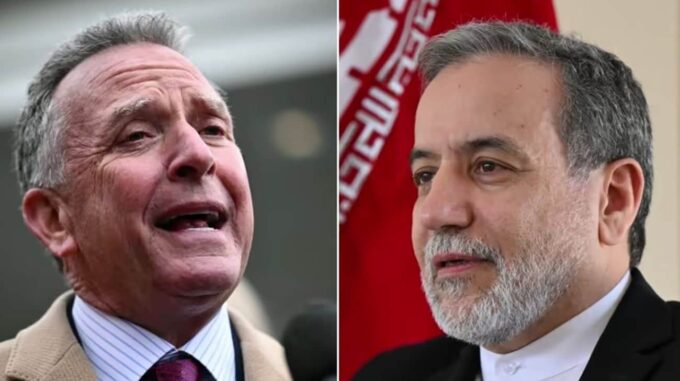Iran and the United States Resume Negotiations on Tehran’s Nuclear Program

On Sunday, May 11, diplomatic efforts between the two countries heightened once again. Later that evening, negotiations between representatives of Iran and the USA commenced in the Omani capital — Muscat — with the aim of finding a resolution to the longstanding nuclear dispute. This diplomatic step was officially confirmed by Reuters, citing Iranian state media, underscoring the importance and relevance of the event. The peculiarity of this meeting lies in the fact that it occurs during a tense period between the countries. Simultaneously with preparations for the talks at a residence in Muscat, and on the eve of US President Donald Trump’s visit to the Middle East, Washington is actively reinforcing its diplomatic and political stance towards achieving its goals regarding Iran’s nuclear program. Although both sides express their intention to continue along the diplomatic path, their primary priorities and “red lines” remain fundamentally opposed. Experts and diplomatic sources believe that this divergence of views is currently very difficult to overcome, complicating prospects for a new agreement and potentially even leading to escalation. Analysts note that this situation poses a real threat that diplomacy might turn into a hot phase — significantly increasing the risk of military conflict. Details on the negotiations. They are taking place under Muscat’s mediation and involve high-ranking diplomats: on the Iranian side — Foreign Minister Abdollahian Araghchi, and on the American side — US Special Representative for the Middle East, Steve Vettehoff. This is already the fourth round of talks aimed at finding a compromise on contentious issues, particularly concerning Iran’s nuclear program. Before the dialogue began, Araghchi did not conceal his intentions; on Sunday, in comments to Iranian television, he emphasized that Tehran advocates a “clear and principled stance,” and hopes to make significant progress during the negotiations. According to him, Iran is defending its key interests and has no intention of compromising on uranium enrichment. At the same time, he expressed hope that diplomacy and further negotiations will still lead to success. On the other hand, in response to these words, US representative Vettehoff made a controversial statement in an interview with Breitbart News on Thursday: he emphasized that the US demands Iran dismantle facilities in Natanz, Fordo, and Isfahan, as well as gradually abandon its multi-faceted nuclear program. Their position, he stated, is that Iran should partially or completely shut down its nuclear activities, which, according to US diplomats, would ensure regional security. Vettehoff explicitly declared that “if negotiations on Sunday do not yield the desired results,” the US will be forced to pursue other avenues. In reply to this rhetoric, in Tehran on Saturday, Araghchi stressed that Iranian authorities will not make concessions on the country’s fundamental rights to uranium enrichment. He added that Iran is open to discussing limitations on nuclear activity and sanctions relief if compromises are reached, but emphasized: “Full cessation of enrichment or the transfer of stockpiles — these are ‘red lines’ that Tehran will not allow to be crossed.” This confirms the high level of resolve on Iran’s part to safeguard its strategic interests. Background: Trump, who repeatedly issued stern warnings and threats of possible military action if diplomacy fails, plans to visit countries in the Persian Gulf — Saudi Arabia, Qatar, and the United Arab Emirates — from May 13 to 16. This step indicates the strengthening of American influence in the region and demonstrates a serious intent to pressure Tehran into complying with US conditions. Additionally, regional actors and Israel are actively discussing possible scenarios in case negotiations fail. Notably, Israeli Prime Minister Benjamin Netanyahu assured that regardless of how negotiations between the US and Iran conclude, his country will categorically prevent Tehran from acquiring nuclear weapons. This further heightens regional tensions and represents another potential factor that could complicate diplomatic efforts. In summary, the situation regarding Iran’s nuclear program remains tense. The negotiations initiated in the Muscat residence are opening a new chapter in diplomatic battles, but prospects for reaching a compromise are still uncertain. Meanwhile, the likelihood of escalation or a new flare-up of tensions is increasing, potentially prompting the international community and regional players to resort to extreme measures once again soon.

